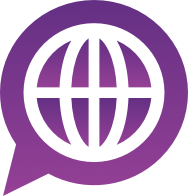The Patient Liaison (PL) Program

Providing education about homocystinuria and how elevated levels of homocysteine can impact the body

Answering questions you might have about CYSTADANE, such as questions about dosing or how CYSTADANE works

Connecting you to resources regarding homocystinuria

Providing PL program services in Spanish, if requested
These services can be provided to you directly by Recordati Rare Diseases at no cost to help support you/your child while on CYSTADANE therapy. For medical care, please continue to contact your doctor.
*This program is not meant to substitute for the advice provided by a medical professional. All decisions regarding patient care must be made with a healthcare provider, considering the unique characteristics of the patient. Always consult a physician if you have health concerns.
To get started with the program, complete the program enrollment form:
The Patient Liaison will contact you upon receipt of the opt-in form.
Where can I get more information and support?
If you or your child is diagnosed with a genetic disorder that causes homocystinuria, you’ll want to find out as much as you can about the disease. The following educational and advocacy groups provide information about rare genetic disorders, including the different types of homocystinuria. You can explore these groups online.
HCU Network America
The HCU Network America strives to inform and provide resources for patients and families, create connections, influence state and federal policy, and support advancement of diagnosis and treatment for HCU and related disorders.
Organic Acidemia Association
The Organic Acidemia Association is a patient advocacy organization that provides support and information for people with inherited metabolic disorders. Homocystinuria caused by several cobalamin defects—cblC, cblD, cblF, cblJ, and cblX—is included as a part of the group’s advocacy activities.
NORD - National Organization for Rare Disorders
NORD is patient advocacy organization dedicated to helping people with rare diseases. NORD provides information on homocystinuria due to CBS deficiency.
Resources for Patients
Downloadable information for patients and families to learn more about the genetic disorders that cause homocystinuria and instructions on how to take CYSTADANE.
INDICATIONS AND USAGE
CYSTADANE (betaine anhydrous for oral solution) is indicated in children and adults for the treatment of homocystinuria to decrease high homocysteine blood levels. Homocystinuria is a rare genetic disorder in which there is an abnormal accumulation of the amino acid homocysteine in the blood and urine. The following are considered to be homocystinuria disorders:
- Cystathionine beta-synthase (CBS) deficiency
- 5,10-methylenetetrahydrofolate reductase (MTHFR) deficiency
- Cobalamin cofactor metabolism (cbl) defect
IMPORTANT SAFETY INFORMATION
- Hypermethioninemia in Patients with CBS Deficiency: CYSTADANE may worsen high methionine blood levels and accumulation of excess fluid in the brain has been reported. If you have been told you have CBS deficiency, your doctor will be monitoring your methionine blood levels to see if changes in your diet and dosage are necessary.
- Most common side effects were nausea and gastrointestinal distress, based on a survey of doctors.
- To report SUSPECTED SIDE EFFECTS, contact Recordati Rare Diseases Inc. at 1-888-575-8344, or FDA at 1-800-FDA-1088 or www.fda.gov/medwatch.
IMPORTANT SAFETY INFORMATION
- Hypermethioninemia in Patients with CBS Deficiency: CYSTADANE may worsen high methionine blood levels and accumulation of excess fluid in the brain has been reported. If you have been told you have CBS deficiency, your doctor will be monitoring your methionine blood levels to see if changes in your diet and dosage are necessary.
- Most common side effects were nausea and gastrointestinal distress, based on a survey of doctors.